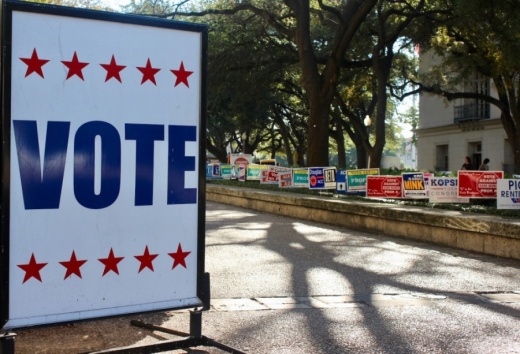The report was discussed during a virtual panel June 18 that included interim Harris County Clerk Christopher Hollins, who provided updates on how Harris County is preparing for 2020 elections, including a July 14 primary runoff election and the November general election.
Titled "Keep the Polls Open," the report highlighted the importance of in-person voting, especially in urban areas where fewer polling places can lead to longer lines and lower turnouts. It was the product of months of research by the VPC and data scientists with Carnegie Mellon University, said Quentin Palfrey, chair of the Voter Protection Corps.
“States and local leaders need to protect our elections with an all-of-the-above approach that includes safe in-person voting or millions of Americans, particularly voters of color and other historically-marginalized groups, will be left on the sidelines in November,” Palfrey said in a statement released with the report.
Elections analyzed in the report included the Illinois primary election in mid-March, the Wisconsin primary election in early April, the Pennsylvania primary election in early June and the Georgia primary election on June 9.
Turnout was down in three of those four states compared to 2016 primaries with turnout increasing in Georgia. In states that saw downturns, the drop was exacerbated in urban areas, according to the report. In Wisconsin—where a poll worker shortage forced the state to reduce the number of polling places from 182 for the 2016 general election to five during 2020 primaries—voter turnout fell by 4% outside of the Milwaukee, the state's largest urban area, but fell by 37% within that city.
Pennsylvania postponed its primary elections from April 28 to June 2, but polling places in the state's largest cities were still cut down significantly, including by more than 600 in Philadelphia, according to the report. Overall voter turnout was down 5% across the state compared to 2016 across the state, but turnout in Philadelphia was down 30%.
A lack of access to in-person voting has an outsize effect on historically marginalized communities, researchers said, including Black Americans, Native Americans, voters who need language assistance and voters with disabilities, all of whom vote in person at higher rates than average. Based on an analysis of Census Bureau data, approximately 88 percent of Black voters cast their ballots in person compared to 75 percent of White voters and 71 percent of Hispanic voters, according to the report.
The report also provided suggestions for how election officials can make in-person voting more safe and secure, including by protecting neighborhood polling places from being closed, recruiting poll workers, expanding the early voting period and communicating to voters that in-person voting is safe.
In addition to the recommendations for in-person voting, Palfrey also called the expansion of mail ballot access a "critical strategy for improving voting during the pandemic" at the June 18 panel. In late May, the Texas Supreme Court rejected a push to have lack of immunity to COVID-19 count as a "disability" under state law—a move that would have vastly expanded the number of Texans who can vote by mail. However, the court also clarified that voters can ultimately decide for themselves whether they qualify as disabled.
Hollins said Harris County is working to expand the number of polling places, both for early voting and election day voting, among other initiatives announced June 15 as a part of a new S.A.F.E. Program. Hollins took over as interim county clerk after former County Clerk Diane Trautman resigned at the end of May citing personal health concerns amid the coronavirus.
With 2.4 million registered voters in Harris County and an overall population that puts the county ahead of half of U.S. states, Hollins said the challenges of providing voter access will require intense planning.
"I think people’s heads and hearts are in the right place, but it comes down to considering the basic operational and logistical issues that could make the election safe," he said at the June 18 panel discussion. "How do you shorten lines? You make sure you have the right amount of machines at the right places where people are going to show up to vote."
For July primary runoffs, Hollins said the number of early voting locations will be expanded by five, up to 57 total locations, and the hours will also be extended at certain locations. The early voting period itself will begin June 29 after being expanded statewide by Gov. Greg Abbott.
In November, Hollins said the county is aiming to have somewhere between 800-1,000 in-person voting locations, up from 785 in 2016.
Hollins also said the county is focused on recruiting poll workers, another major focus of the VPC report.
"We are going to over-recruit," he said. "We are going to over-train people."
The full report can be found here.





